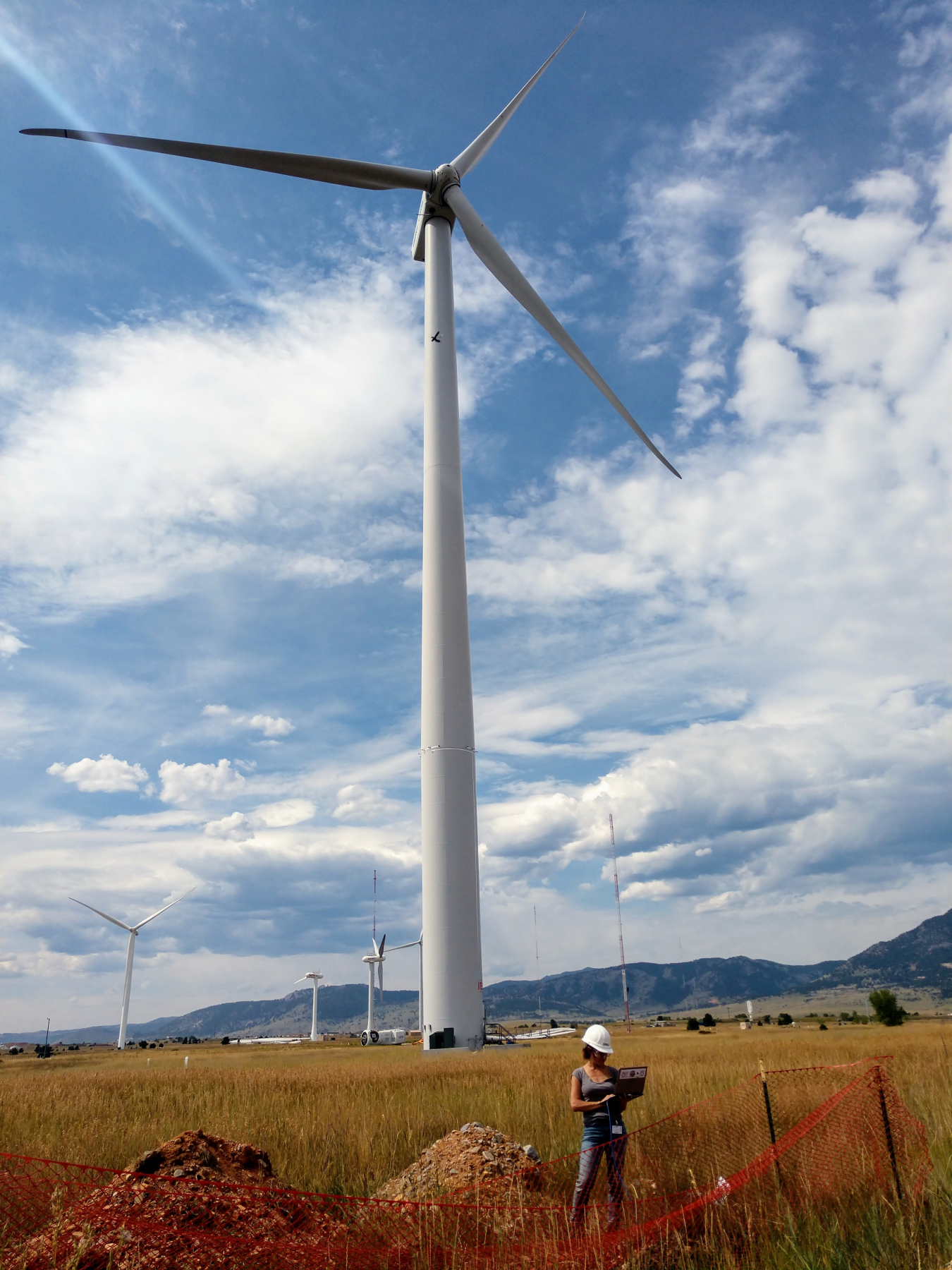Learn why Dr. Amanda Kolker loves her job as a geologist and geothermal energy analyst at the National Renewable Energy Laboratory.
December 16, 2019
Amanda Kolker is a Ph.D. geologist currently working as a geothermal energy analyst at the National Renewable Energy Laboratory (NREL). She joined the NREL team in April 2019 with broad experience in geothermal exploration, resource evaluation, and sustainable production of geothermal energy worldwide. Amanda has been dedicated to geothermal research and development since her first trip to Iceland, a world leader in the use of geothermal energy. After an internship with the State of Alaska’s Renewable Energy Office, Amanda founded her own geologic consulting firm, conducting geothermal exploration in Alaska and across the Western United States. She also worked as a professor of geothermal engineering at the Oregon Institute of Technology and was most recently working in France as part of a European research-industry consortium aimed at advancing geothermal development worldwide.
What inspired you to work in STEM?
Science has always inspired a sense of wonder in me. I am a person with many interests, but science has risen to the top due to its rigor, attentiveness, and how practicing science shapes my ways of thinking. Earth science particularly appeals to me because of my deep awe of our planet and the processes that shape it.
What excites you about your work at the Energy Department?
Energy – that immaterial phenomenon – is critical to most of today’s material challenges. I believe renewable energy has a huge role to play in what may be a major paradigm shift for our society, and I am thrilled to be working on renewables in a place that is both innovative and pragmatic. From a research perspective, I value multidisciplinary approaches to problems, so I feel I’m in the right place with NREL’s crosscutting research programs at the intersections of science, policy, and economics. Finally, I welcome this opportunity to learn about other renewable technologies.
How can our country engage more women, girls, and other underrepresented groups in STEM?
Most people will not remain working in a field that doesn’t make them feel good. Beginning in graduate school, I have witnessed a general gender gap in self-confidence levels for individuals working in STEM. It’s well documented that women in STEM tend to speak less. I’d add that when they do, it’s often with less self-assurance than their male counterparts. I tend to believe that this is more from their societal conditioning than their innate nature, so the STEM community could be working on identifying unconscious bias and examining how it impacts not just women but any underrepresented group in STEM, actively working on inclusion and fostering supportive workplace environments.
Do you have tips you'd recommend for someone looking to enter your field of work?
Be persistent, be creative, and jump on opportunities. Seek advice from those who have come before you, but don’t follow it if it contradicts your instincts. Treat everything as a learning experience.
When you have free time, what are your hobbies?
I enjoy music, hiking, and farming outside of work.
Learn more about our programs & resources for women and girls in STEM at http://www.energy.gov/women

